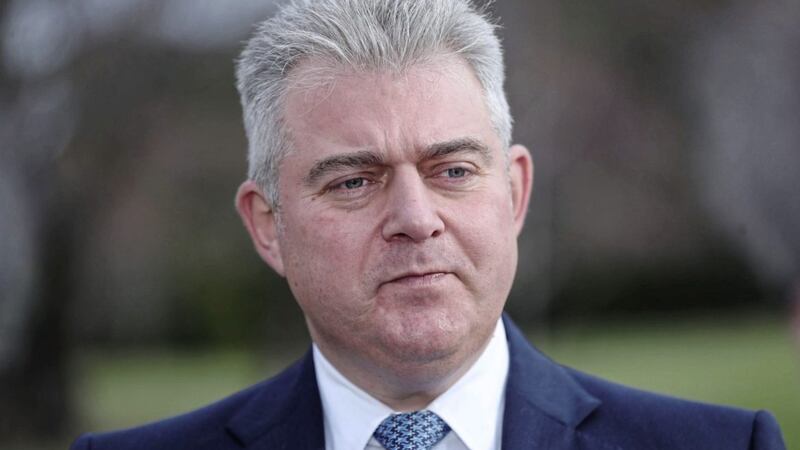What does the legacy of the conflict, Brexit and the coronavirus pandemic have in common when it comes to the British government’s attitude to the health and wellbeing of the people of Ireland?
All are uniformly treated with callous disregard and are only weighed in terms of British social, economic and reputational interests.
When it comes to Brexit the economies of Ireland can go to rack and ruin as far Britain is concerned.
When it comes to the coronavirus, the British government and unionists (for a time), attempted to impose a hare-brained ‘herd immunity’ scheme, which risked the lives of thousands of people in the north, with a spill-over threat to the people of the south, with a proportionate potential loss of life, on a par with Britain, which is now sitting at 40,000 lives lost.
When it comes to resolving the legacy of the conflict, which also affects thousands of people, once again we see contempt and indifference to the feelings of the relatives of those who died at the hands of British crown forces and loyalists through collusion and those organisations which support them.
It is hard to believe (but not really, given Britain’s ‘dirty war tactics’ during the conflict) that in the middle of an almost overwhelming, life-taking and life-threatening pandemic, when the people of this country and the Belfast and Dublin governments, are stretched to capacity trying to save people’s lives, the British Secretary of State Brandon Lewis, should announce the government’s intentions to effectively bin the Stormont House Agreement (SHA).
That agreement was reached after painstaking negotiations and has the support of the Irish government and all the Assembly parties and is designed to resolve the legacy issue to the satisfaction of the relatives who on all sides lost loved ones.
There were many, many false dawns, along the way before the SHA - which is human rights and Article 2 (the ‘right to life’) – compliant was finally agreed.
Now this unprecedented progress is being squandered on manufactured, bogus myths that former British soldiers are facing a ‘cycle of reinvestigations’ and ‘vexatious claims’; myths that found their way into the British Queen’s speech opening Westminster’s parliament, written for her by the British government.
However preposterous these claims, the British government appears intent on trying to shoe-horn their latest legacy fantasy into a fraught and emotional world, where many people, especially relatives, will be deeply angry and disappointed at this twisted turn of events.
Mark Thompson, CEO of Relatives for Justice, described Lewis’s proposals as “a co-ordinated strategy that is all about keeping the lid closed on the past and shielding the state from exposure with regard to its actions; defending the status quo about the past and nothing at all about families, truth, justice, accountability or the rule of law.”
The Committee on the Administration of Justice and a group of academics based at Queen's University, in a comprehensive and detailed rejection of Lewis’s proposals, said the ‘witch-hunt’ claims against members of the British forces, “with regard to legacy investigations and prosecutions, are neither factually nor legally accurate and lack intellectual credibility.”
A letter from the north’s Catholic bishops to Brandon Lewis captures the deep anger across Irish society at the high-handed, arrogant and dictatorial attitude of the British government in its treatment of the Catholic population, who bore the brunt of the killings by the Crown forces and loyalists during the conflict.
They said: “If we trivialise or ignore the history of suffering, or call on those who have suffered to forget or overlook their suffering, we are in fact continuing to perpetuate an oppressive situation.
“Reconciliation can only come about if the nature of the violence perpetrated is acknowledged, and conditions for its reoccurrence are removed. Real reconciliation means that we cannot forget the past. We must face the past, no matter how costly or painful that encounter may be for real reconciliation to flourish.
“Victims and survivors have paid the highest price for the fragile peace we all enjoy today. For too long their voices have been marginalised in our society and their needs neglected.”
The only way to resolve the legacy issue, as Mark Thompson says, is through the implementation of the Stormont House Agreement.
But because the process holds Britain to account it will lie and try to wriggle its way out of it, just as it misled us about the coronavirus pandemic and Brexit.








